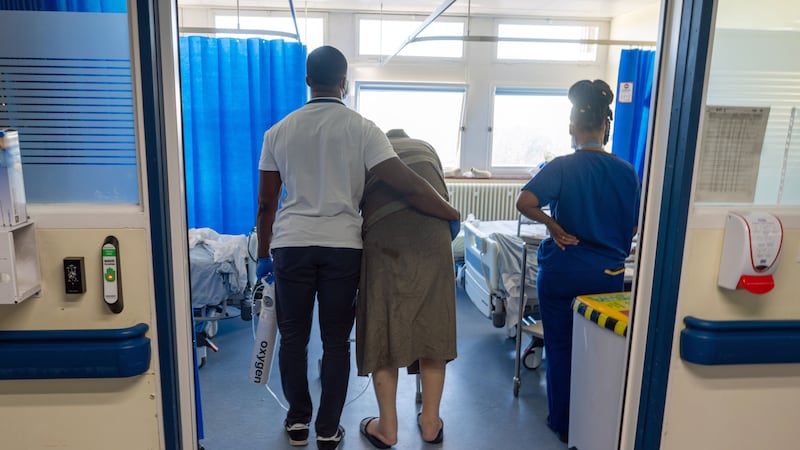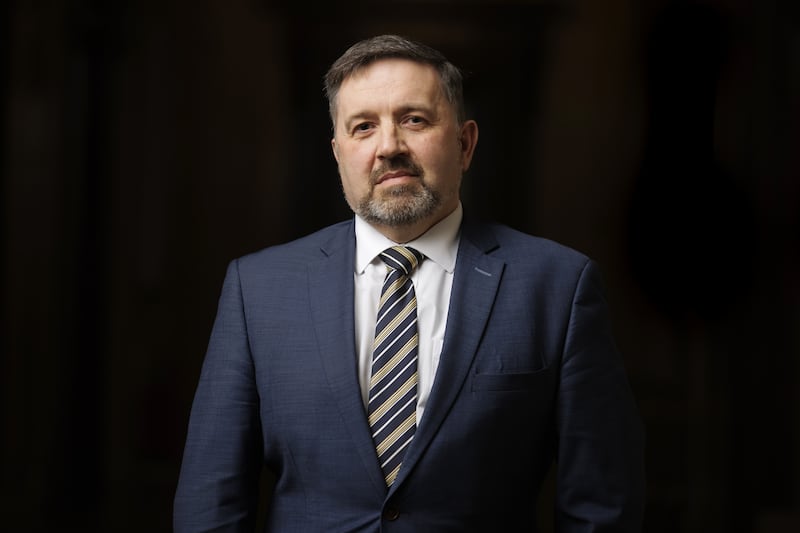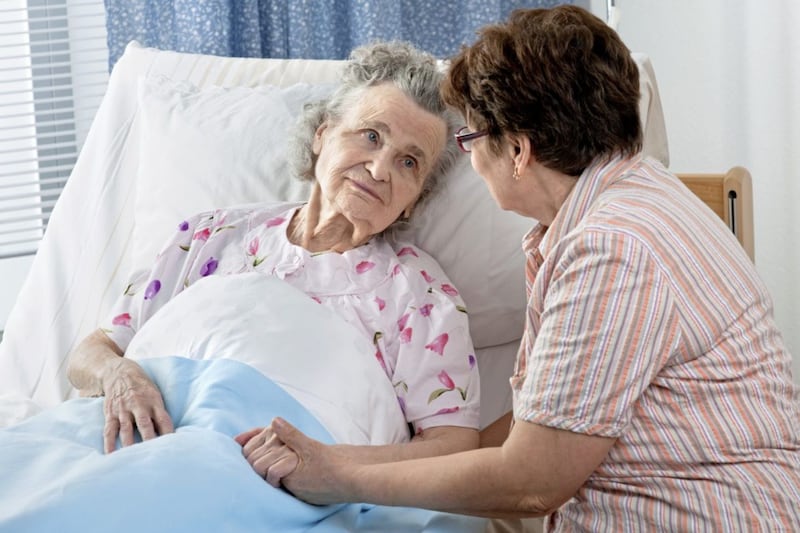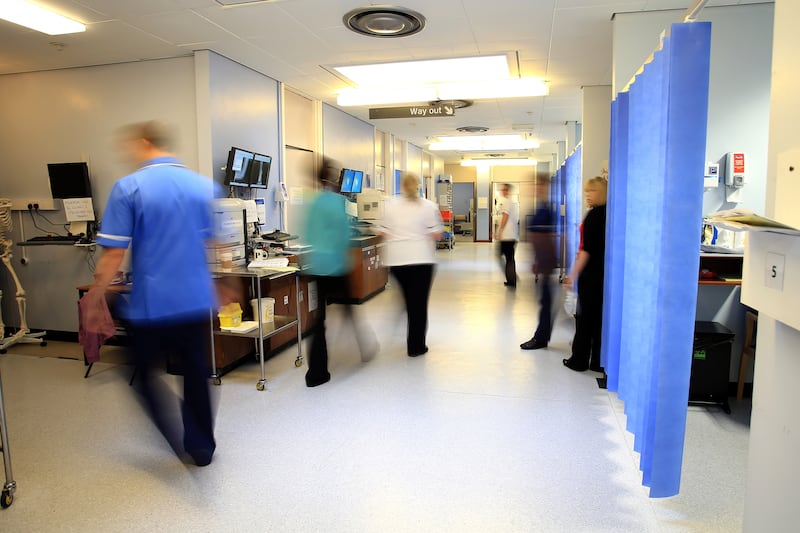Healthcare staff have said they are being verbally or physically attacked on a daily basis, as new figures from the Department of Health show there have been more than 50,000 attacks in the last five years.
The figures were released by the department as it launches a new framework to help tackle violence and aggression towards health and social care (HSC) staff.
Titled It’s Not Part Of The Job, it has been produced by the Department of Health in partnership with health trusts and trade unions.
It aims to prevent, reduce and respond to violence and aggression in health and social care.

Doctor Eimhear Kearney is an emergency department consultant at Antrim Area hospital, who said she is not surprised by the latest figures.
“We are seeing attacks on staff every day,” she said.
“Those attacks vary, they can be anything from verbal insults and do sometimes tip over into that physical assault or violent aggression, and that is now every day.”
Dr Kearney said staff have noticed an increase in attacks as pressure mounts on the health system and frustration grows amongst patients.
“That escalation has happened since Covid, and I have to say that it’s the frustration,” she said.
“Patients are experiencing longer wait times, patients are experiencing missed appointments or delay in outpatient appointments, they come seeking help because our door is always open here at the emergency department.
“We’re glad that it’s always open and we will be able to help you as soon as we can, as quickly as we can. But there will be delays.
“That delay hasn’t come from us, we will continue to do our best. But that is definitely one of the reasons we are seeing an increase.
“It’s the overall system that is under pressure that is leading to these delays.”
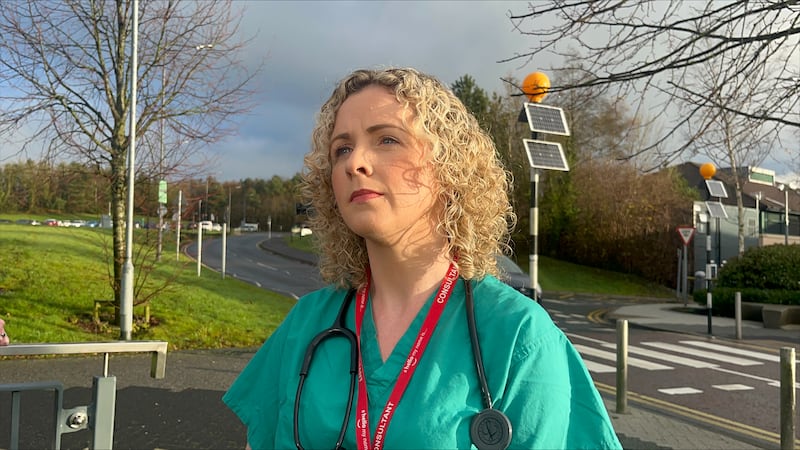
With about 10,000 incidents a year where staff were subjected to physical abuse, the highest was 2022/23 where 10,873 faced an incident.
In total, 51,595 incidents have been recorded since 2018.
Nurse Almira Barro is an interim ward manager and one of the thousands of healthcare staff who have experienced physical assault at work.
Ms Barro was punched by a patient she described as “very frustrated”.
“Thankfully then the other teams, the doctors and paramedics, were there to help, to try and get the patient in the place and get the patient seen by the doctor,” she said.
“But it’s very upsetting for me. Apart from us wanting to do all of those cares and caring for the others then we have to stop because of the incident and the situation.”
Ms Barro said that incidents of verbal or physical assault can cause stress and affect the mental health of staff, but that they never wanted to stop caring for patients.
“It’s really difficult to come back knowing that you have just been assaulted,” she said.
“It is from the goodness of your heart, you know that there are people waiting and needing your care.
“So yes, as much as we would like to take time off then, we often do come again and do the same thing in caring for the patient.”

Permanent Secretary at the Department of Health Peter May said no-one should have to face the threat of aggression or violence in the course of their job,
“Least of all HSC staff who dedicate their lives to protecting and caring for patients,” he said.
“The figures released today are appalling.
“HSC staff work in highly pressured environments and incidents such as these make their jobs more difficult.
“Abusive behaviour causes mental and physical harm to staff, leading to time off work and less time with patients.”
Mr May said he understood the pressures patients faced while undergoing healthcare, but that acting abusively towards staff was never acceptable.
“HSC staff are empathetic and frequently express their understanding as to why some people behave in certain ways, sometimes that’s due to illness but often it’s just unacceptable behaviour which is not part of the job,” he said.
“We know that health and social care is under immense strain and this means people have to wait longer for care and treatment.
“I understand that this is frustrating, however, reacting abusively in these situations is not acceptable.
“As the majority of people recognise, staff are doing their best in a system that is significantly under-resourced.
“They deserve our appreciation and respect.”
The framework published on Tuesday outlines the HSC’s commitment to ensuring the prevention, reduction and management of violence and aggression towards staff.
It has also been designed to ensure the right structures, policies and support are in place to enable staff to work safely.
Mr May said the framework would aim to make working in healthcare safer.
“The framework acknowledges that it is not possible to fully eliminate incidents of inappropriate behaviour when providing health services, as staff are required to treat and care for a wide range of people in challenging circumstances,” he said.
“Nonetheless, employers have a duty to provide a safe, secure environment and support for staff and others.
“Trusts are therefore required to undertake risk assessments as applicable and when incidents do occur, it is vital that they are dealt with appropriately and that staff are supported.
“The framework makes clear that trusts will also be expected to ensure incidents are reviewed and lessons learnt to reduce the risk of future occurrences.”
